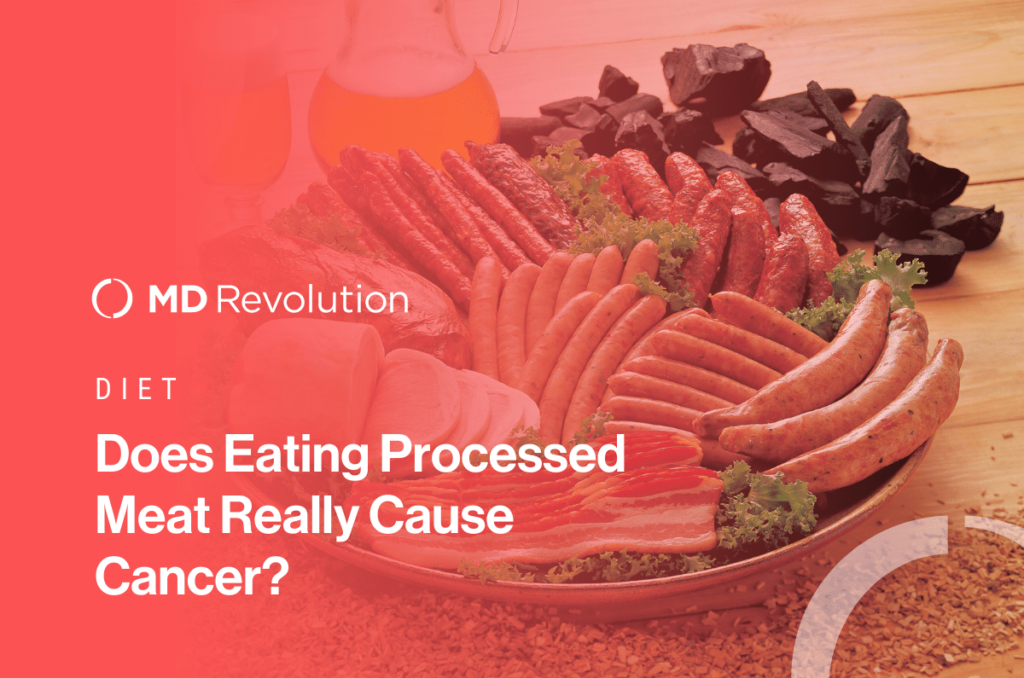On Monday, the World Health Organization (WHO) published a review of more than 800 research studies that showed the consumption of processed meats (hot dogs, sausages, bacon, etc.) can cause colorectal cancer in humans due to their carcinogenic properties. Additionally, they found a link between red meat (beef, pork, lamb) consumption and pancreatic and prostate cancer.
While the WHO is making some strong conclusions on the association of processed and red meats with cancer, this really isn’t new news. Research has been showing that processed meat is not the healthiest option for a long time. There is known risk tied to consuming these food products. The real question now is: how much risk? From what research has shown, it is not very much. The report indicates processed meats add 18% to your risk of developing colon cancer. In comparison, a fellow carcinogen, smoking, increases your risk of lung cancer by 2,500%.
The risk of developing cancer as a result of eating processed meat is small, but the level of risk does increase with greater doses. The more processed and red meats take up space in our diet, the less room there is for higher quality, whole foods with nutritional properties that support our bodies’ abilities to remain well.
The risk of developing cancer as a result of eating processed meat is small, but the level of risk does increase with greater doses.
We are exposed to carcinogens on a daily basis. Our bodies are resilient and built to overcome these environmental toxins. However, this is not a free pass to consume potentially harmful foods on a daily basis. The WHO report did not give clear guidance on the amount of meat that can be consumed before cancer, or any bodily harm for that matter, occurs. Therefore, the moral of the story here is to moderate your consumption of potentially harmful foods and increase consumption of foods that have been proven to do your body good. Just because a study shows something CAN cause cancer, that does not mean it WILL. However, this increased risk is avoidable simply by decreasing processed and red meat consumption.
What should you do?
- Eat more white meat: poultry and fish
- Fill your diet with foods that have been shown to reduce chronic disease and cancer risk: colorful fruits and vegetables. More produce in your diet generally means less room for meat.
- Include more fiber rich foods in your diet to support a healthy digestive tract and ward of cancer risk. Choose whole grains over refined grains and eat high fiber vegetables and fruit.
When/If you are going to consume meat:
- Do your best to buy the highest quality available. Know the source of your meat. If you can, shop at your local farmers market for meat.
- Look at the ingredients label and choose meats that have no more than a handful of ingredients. Don’t buy meats with ingredients you don’t recognize. You can buy bacon or sausage from local farmers that are made with only meat and spices!
- Minimize grilling these meats at high heat. That nice char you get from a grill increases the carcinogen content of your meat quite a bit.
- Eat less of it. Be mindful of the amount of processed and red meat you eat on a daily and weekly basis. A steak several times a week will lead to much lower cancer risk than bacon every day for breakfast, a ham sandwich for lunch and a hot dog for dinner.



